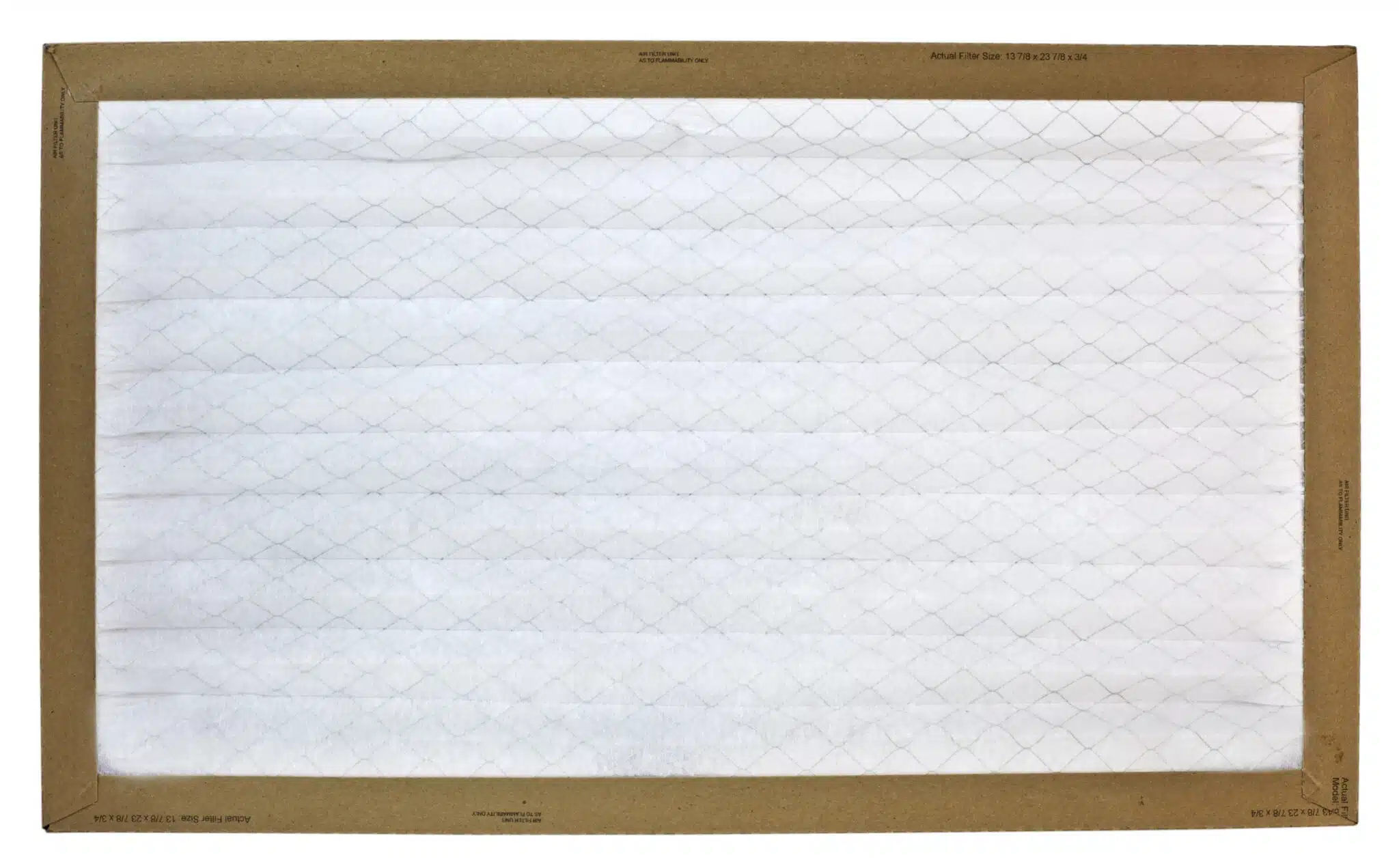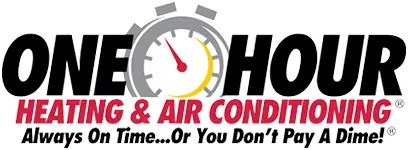Choosing the right HVAC filter replacement is crucial for maintaining the air quality in your home and ensuring your system runs efficiently. With various options on the market, it can be overwhelming to select the perfect one. Whether you’re in Lancaster, PA, or York, PA, understanding the basics of HVAC filters is the first step toward making an informed decision. This guide aims to simplify the process, helping you find a filter that meets your needs.
HVAC filter replacement is not just about fitting a new piece into your system, it’s about choosing a filter that captures pollutants effectively without restricting airflow. Each home has unique needs based on its size, the local environment, and the occupants’ health concerns. Therefore, identifying the right balance between filtration efficiency and airflow is key to optimizing your HVAC system’s performance.
In Lancaster, PA, homeowners might prioritize filters that excel at capturing allergens due to the area’s seasonal changes. Meanwhile, in York, PA, residents might focus on filters that can handle higher levels of dust and pollen. Regardless of your specific needs, understanding the ratings and specifications of HVAC filters is essential.
Ultimately, the goal of HVAC filter replacement is to enhance indoor air quality and protect your system from premature wear. By selecting the right filter, you not only ensure cleaner air for your family but also contribute to the longevity and efficiency of your HVAC system. This guide will provide you with the knowledge to choose a filter that aligns with your home’s requirements, promoting a healthier and more comfortable living environment.

Understanding HVAC Filter Types
Understanding the different types of HVAC filters is crucial for making an informed choice. There are several varieties, each designed to meet specific needs. For instance, fiberglass filters are commonly used due to their affordability and ability to trap large particles. However, they might not be the best choice for homes in Lancaster, PA, where finer allergens are a concern.
Pleated filters, on the other hand, offer a higher level of filtration. They can capture smaller particles, making them ideal for households with pets or for people with allergies. These filters are more effective at improving indoor air quality, which is essential for maintaining a healthy environment. Residents in York, PA, might find these particularly beneficial during high pollen seasons.
Another option to consider is the HEPA filter, known for its ability to trap 99.97% of particles that are 0.3 microns or larger. These filters are excellent for homes with individuals who have respiratory issues or compromised immune systems. While HEPA filters are more efficient, they also require systems that can handle the increased airflow resistance.
Lastly, washable air filters offer a reusable solution for those looking to minimize waste. While they can be cost-effective over time, they require regular cleaning to maintain efficiency. This option might appeal to environmentally conscious homeowners who are committed to reducing their carbon footprint. No matter your location or specific needs, there’s an HVAC filter replacement that’s right for you.
The Importance of MERV Ratings in HVAC Filter Replacement
When considering HVAC filter replacement, understanding MERV ratings is crucial. MERV stands for Minimum Efficiency Reporting Value, a standard that measures a filter’s ability to capture particles from the air. Filters with higher MERV ratings can trap smaller particles, making them more effective at improving indoor air quality. For residents in Lancaster, PA, choosing a filter with the right MERV rating can significantly impact the cleanliness of the air in their homes.
It’s important to find a balance between air filtration efficiency and airflow. Filters with very high MERV ratings might capture more pollutants, but they can also restrict airflow in your HVAC system. This can lead to decreased efficiency and increased strain on the system, potentially shortening its lifespan. Homeowners in York, PA, should consider their system’s capabilities when selecting a filter with an appropriate MERV rating.
For households with specific health concerns, such as allergies or respiratory conditions, filters with higher MERV ratings are often recommended. These filters can capture fine particles like pollen, dust mites, and mold spores, providing a cleaner living environment. However, it’s essential to ensure your HVAC system can handle these high-efficiency filters without compromising performance.
Ultimately, the right HVAC filter replacement is about balancing needs with system capabilities. By choosing a filter with an appropriate MERV rating, you can enhance air quality while maintaining your system’s efficiency. Whether you’re in Lancaster, PA, or York, PA, taking the time to understand MERV ratings will help you make an informed decision, leading to a healthier and more comfortable home environment.
How to Determine the Right Size for Your HVAC Filter Replacement
Determining the right size for your HVAC filter replacement is crucial for ensuring optimal air quality and system performance. The size of the filter directly impacts its ability to filter out pollutants without restricting airflow. To find the correct size, check your current HVAC system’s manual or the existing filter for specifications. This ensures the new filter fits perfectly, avoiding gaps that could let unfiltered air pass through.
In Lancaster, PA, homeowners might face unique challenges due to seasonal changes affecting air quality. It’s important to consider these local conditions when selecting a filter size. A properly sized filter can handle the influx of allergens during high pollen seasons, maintaining a clean indoor environment. Remember, a filter that’s too small or too large can compromise your system’s efficiency and air quality.
Residents in York, PA, should also pay attention to their HVAC system’s requirements. Some systems may need custom-sized filters, especially if they are older or have unique configurations. In these cases, consulting with a professional can help you find a filter that fits your system’s specific needs. They can provide guidance on measuring and selecting the right size, ensuring your HVAC operates effectively.
Finally, regularly replacing your HVAC filter is key to sustaining air quality and system health. A filter that fits well and is changed according to the manufacturer’s recommendations will keep your system running smoothly. Whether you’re in Lancaster, PA, or York, PA, understanding the importance of filter size helps maintain a comfortable and healthy home environment. Always prioritize the right fit for your system to ensure it functions at its best.
Factors to Consider When Choosing an HVAC Filter
When choosing an HVAC filter replacement, the frequency of replacement is a crucial factor to consider. A filter that needs to be changed less often might be appealing, but it’s essential to balance this with your home’s air quality needs. In Lancaster, PA, where seasonal changes can introduce more allergens into the air, opting for a filter that you replace more frequently might be beneficial. This ensures your air stays clean, even when pollen counts are high.
Another important consideration is the environment inside your home. Homes with pets, for instance, might require filters that are more adept at capturing pet dander and hair. Residents in York, PA, with furry friends should look for filters that can handle this extra level of filtration without compromising airflow. Keeping your specific living situation in mind will guide you to the best HVAC filter replacement for your needs.
Additionally, the overall health of the household occupants plays a significant role in the filter selection process. For families with members who have allergies or respiratory issues, choosing a filter with a higher MERV rating could provide a noticeable improvement in living conditions. It’s about finding a filter that captures enough pollutants to keep everyone comfortable without straining the HVAC system.
Lastly, consider the sustainability of the filter. Reusable filters might offer an environmentally friendly option, but they require regular maintenance to remain effective. For those in areas like Lancaster, PA, and York, PA, weighing the benefits of a reusable filter against the effort required for upkeep can help you make a responsible and practical choice for your HVAC filter replacement.

The Role of HVAC Filters in Indoor Air Quality
HVAC filters play a pivotal role in maintaining indoor air quality by trapping pollutants and allergens that can affect health and comfort. In Lancaster, PA, where seasonal changes bring varying levels of allergens, the right HVAC filter replacement ensures a cleaner living environment. This is crucial for homes with individuals who suffer from allergies or respiratory conditions, as it can significantly reduce the presence of irritants in the air.
Selecting an HVAC filter with the appropriate MERV rating can enhance the air quality in your home without compromising the efficiency of your system. Residents of York, PA, should consider the local pollen and dust levels when choosing their filter. A higher MERV rating might be beneficial during peak allergy seasons, capturing finer particles and providing relief from outdoor allergens.
Moreover, the role of HVAC filters extends beyond improving air quality, they also protect your system from premature wear. By capturing dust, pet dander, and other debris, filters prevent these particles from entering the HVAC system, where they can cause damage or reduce efficiency. Regular HVAC filter replacement is a simple yet effective way to extend the lifespan of your system and ensure it operates smoothly.
Lastly, understanding the impact of HVAC filters on indoor air quality empowers homeowners to make informed decisions about their HVAC maintenance. Whether you’re in Lancaster, PA, or York, PA, choosing the right filter replacement can lead to a healthier, more comfortable home. It’s a proactive step towards safeguarding your family’s well-being and enhancing the performance of your HVAC system.
HVAC Filter Replacement Frequency Guidelines
Knowing when to replace your HVAC filter is as important as selecting the right one. In Lancaster, PA, the changing seasons can significantly affect how often you need a new filter. A general rule is to check your filter monthly and plan for a replacement every 90 days. However, this frequency might increase if you have pets, allergies, or live in areas with high pollen counts.
For residents in York, PA, monitoring indoor air quality can help determine the best time for HVAC filter replacement. If you notice signs of decreased air quality, such as dust accumulation or musty odors, it’s likely time for a change. Remember, a clean filter is essential for maintaining efficient airflow and preventing strain on your HVAC system.
In addition to seasonal changes, consider the specific needs of your household. Homes with allergy sufferers or respiratory issues may benefit from more frequent HVAC filter replacements. This ensures the air remains clean, reducing potential health risks and improving overall comfort.
Lastly, always choose quality filters that match your system’s requirements. While it’s tempting to extend the life of your filter to save time, a clogged filter can harm your system and degrade air quality. By adhering to recommended HVAC filter replacement guidelines, you can keep your home in Lancaster, PA, or York, PA, comfortable and healthy year-round.
Step-by-Step Guide to Replacing Your HVAC Filter
Replacing your HVAC filter is a straightforward process that significantly impacts your home’s air quality and the efficiency of your system. First, ensure your HVAC system is turned off to prevent any airflow while you’re changing the filter. This safety step is crucial for avoiding any potential hazards or system damage during the replacement process. Residents in Lancaster, PA, should remember this, especially during seasonal maintenance when system usage is high.
Next, locate the filter compartment, which is typically found along the return duct or in the air handler cabinet. In some homes, especially older ones in York, PA, the compartment might be in a less obvious location, so consulting your system’s manual can provide clarity. Once found, open the compartment door or cover to access the old filter. It’s important to note the direction of the airflow and the positioning of the old filter before removal to ensure the new one is installed correctly.
Carefully remove the old filter and dispose of it properly. Before inserting the new HVAC filter, check its size and MERV rating to confirm it matches your system’s requirements and your home’s air quality needs. This step is crucial for maintaining optimal airflow and filtration efficiency. A correctly sized filter prevents gaps that could allow unfiltered air to circulate through your home, ensuring the air you breathe is as clean as possible.
Finally, insert the new filter in the same orientation as the old one, paying close attention to the airflow arrows printed on the filter’s frame. These arrows should point in the direction the air flows through your system. Once the new filter is securely in place, close the compartment and turn your HVAC system back on. Regular HVAC filter replacement, as part of your home’s maintenance routine, promotes a healthier living environment and prolongs the life of your HVAC system, benefiting everyone in your household.
Tips for Maintaining Your HVAC System Post-Filter Replacement
After replacing your HVAC filter, it’s important to keep up with regular system checks. This ensures everything runs smoothly and efficiently. In Lancaster, PA, where weather can change, checking your system seasonally can prevent unexpected issues. These checks can include listening for unusual noises and monitoring your system’s performance, which can indicate when it’s time for professional maintenance.
In addition to system checks, maintaining a clean environment around your HVAC unit is crucial. Ensure there’s no debris, such as leaves or dust, blocking the airflow around both indoor and outdoor units. Residents in York, PA, might find this especially important during the fall when leaves are abundant. A clear area helps your system operate efficiently, making the most of your HVAC filter replacement.
It’s also beneficial to schedule professional HVAC maintenance annually. A qualified technician can spot issues you might miss and perform necessary adjustments. They ensure your system is in top shape, which can extend its lifespan and improve air quality. This proactive approach can save you from costly repairs down the line and ensure your system is always ready, no matter the season.
Lastly, keep track of when you’ve performed an HVAC filter replacement and any maintenance activities. Creating a simple log can help you stay on top of your system’s needs. This is especially helpful in managing the efficiency and performance of your HVAC system over time. By following these tips, homeowners in Lancaster, PA, and York, PA, can enjoy a comfortable home environment all year round.
Frequently Asked Questions
What factors influence HVAC filter choice?
Choosing the right HVAC filter replacement involves considering several factors. First, the size and type of your HVAC system play a crucial role. Next, think about the air quality in your home and any allergies among residents. Lastly, filter efficiency, indicated by its MERV rating, determines its ability to trap particles. These elements ensure you select a filter that maintains both air quality and system efficiency.
How often should you replace your HVAC filter?
Replacing your HVAC filter is crucial for maintaining air quality and system efficiency. Generally, it’s recommended to change it every 90 days. However, if you have pets or allergies, consider replacing it more frequently, about every 60 days. This simple step can significantly improve your home’s air quality and the performance of your HVAC system.
What are the benefits of regular HVAC filter replacement?
Regularly changing your HVAC filter offers several key benefits. It keeps the air in your home clean, reducing allergens and pollutants. This practice also helps your HVAC system run more efficiently, saving energy. Plus, it extends the life of your system by preventing dust and dirt buildup. In short, a simple filter swap can significantly improve your home’s air quality and the performance of your HVAC equipment.
How do I know the size of my HVAC filter replacement?
Finding the right size for your HVAC filter replacement is straightforward. First, check your current filter for its dimensions, usually printed on the side. If there’s no size visible, measure the length, width, and depth yourself. Remember, a precise fit is key to ensuring your system runs efficiently and keeps air quality high.
Can HVAC filter replacement improve air quality?
Absolutely, changing your HVAC filter can significantly enhance the air quality in your home. By trapping dust, pollen, and other airborne particles, it ensures cleaner breathing air. This is especially important for those with allergies or respiratory issues. Moreover, a clean filter supports your HVAC system’s efficiency, promoting a healthier living environment.





